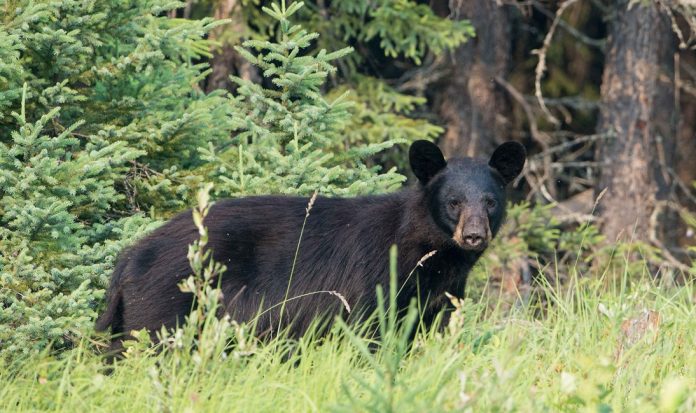
Uko Akpanuko
Daily Herald
Saskatchewan residents are out enjoyed the last few days of summer, and environmental experts are asking them to be bear aware while they do it.
As fall approaches, black bears will be out maintaining and building their fat stores in preparation for winter. There are common across much of Saskatchewan, however residents must remember to keep themselves and the bear safe whenever bears are seen.
“It is not unusual to be seeing black bears through out the snow free season, as we enter August and into fall,” said Matthew Tokaruk, a bear biologist with Saskatchewan’s Ministry of Environment. “The black bear are attempting to put on fat for hibernation seeking out a lot of food wherever they can find them and they cant be more visible at this time of the year.”
Tokaruk said bears are intelligent, but ruled by their stomachs. If they cannot find food in one area, they will move along to another. You can reduce the likelihood of human-bear conflict by keeping spaces such as yards and campsites free of attractants like garbage, un-cleaned barbecues, bird feeders and pet food.
“It’s normal to encounter bears across much of Saskatchewan,” Tokaruk said. “Most folks that are out hiking or travelling around the country will see black bears from time to time. The first thing is to stay calm. If you are hiking, its good to hike in groups and let bears know you are in the area by talking, singing or carrying a bell when you are hiking.
“Never feed or approach a bear or cubs, its unlawful to do that. Stay calm – don’t run. Do not climb a tree, black bears are excellent climbers. Carry Bear spray around.”
Also if you must pass a bear, Tokaruk said, make a wide detour. If you encounter one, back away – speaking firmly and calmly – and don’t look directly at the bear. Move toward a vehicle, building, tree, rock or other cover. If the bear continues to approach, drop an article of clothing such as a jacket or hat to distract the bear. Get out your bear spray and prepare to use it.
In most cases, black bears will threaten but not attack. If attacked, defend yourself; do not play dead.
“A big part of living in bear country and around bear is managing not to attract them (with) food and smells in our yards, campsite or cottages,” Tokaruk said. “Having all these scents under control and not available to bears is very useful.
“Generally speaking, when we have bears that are problematic its because they are accessing food left by people. The more we can reduce that and manages not to attract them, the better for us and the better for bears.”
If a bear or any other wildlife poses an immediate risk to people’s safety, call 911. To report an encounter with aggressive wildlife, call the Turn in Poachers and Polluters (TIPP) line at 1-800-667-7561. Concerns regarding bears or other nuisance wildlife can be reported to the Ministry of Environment by calling 1-800-567-4224 or email center.inquiry@gov.sk.ca.

